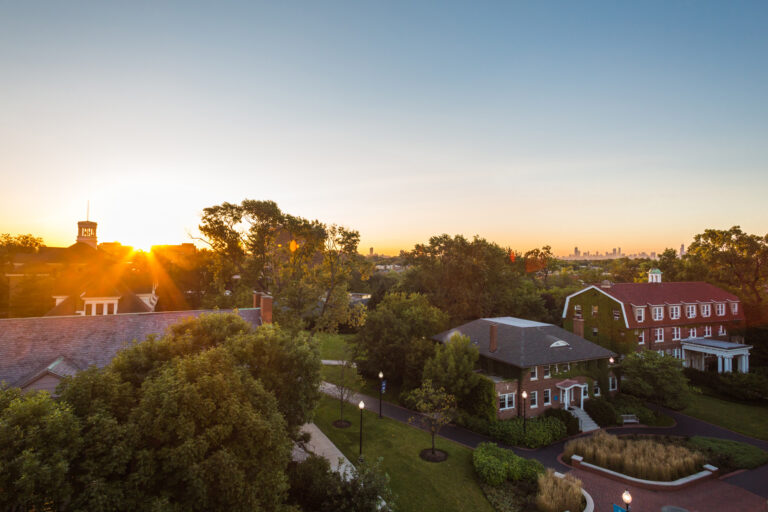Educators are up against countless digital distractions in the battle for students’ eyeballs.
School of Education Dean Rebecca Nelson says North Parkers are preparing for these, and other, challenges via cutting-edge teaching techniques and approaches.
In the age of Fortnite, social media, and YouTube, elementary and high school teach-ers are finding it increasingly difficult to engage students.
But North Park teaching candidates are prepared for such challenges, thanks to the cutting-edge teaching approaches of its faculty.
“We’re seeking ways to use electronics in the classroom,” says Rebecca Nelson A’68 C’71, Dean of the School of Education. “We figure if they’re going to have their phones anyway, we might as well use them to answer quiz questions and see if they’re learning what we’re teaching them.”
Incorporating cell phones and tablets into the classroom, as opposed to banning them, is just one of the ways North Park’s School of Education is on the cutting edge of teacher preparation. Another brand-new initiative, says Nelson, is tailoring teaching techniques to specific age groups.
“It used to be that we lumped all K–12th grade students together,” Nelson says. “Now we realize that students learn very differently depending on specific age groups. Now that we know about these new effective learning and teaching techniques, we can pass them on to our teacher candidates.”
In other words, a sixth grader is going to be motivated by particular methods and learn differently than, say, a senior in high school or a second grader.

The new methods are being woven into the curriculum, which happens to be under review this year as part of the state’s mandatory re-accreditation process.
“The process allows us to look carefully at the courses we’re offering, add new ones, update things, and generally look at everything with a fresh lens,” Nelson says.
But some things about North Park’s School of Education will always remain the same.
“The hallmarks of a North Park education are that our professors know and care about our students; they know them by name and care about them as individuals,” Nelson says.
North Park’s Chicago location is another huge advantage over a university in a rural area, where students might have just one or two teaching opportunities.
“We’re one of just a few universities that is embedded in the city, which allows us to provide a variety of experiences so that our students have placements in city and suburban schools, which in many cases they can walk or take the bus to.”
The variety also means students are more likely to find the right fit for their skills and strengths.
“Because we have so many schools in the area, and each one has a unique flavor, we’re able to match the right student to the right school,” Nelson says.
North Park’s School of Education also benefits from faculty with deep experience and connections, including Nelson, a North Park graduate herself. A music major who performed with the Chicago Symphony Chorus, Nelson has taught grades 1–6, was a school principal, and finished her career as Superintendent of Skokie School District 69 before returning to North Park in 2008.
Because North Park has a “deservedly strong reputation,” Nelson routinely fields calls from schools asking for teaching candidates.
“Our students reflect a passion to teach. They chose North Park because this is missional for them, to serve diverse communities and those who need to be served,” Nelson says. “Being a teacher is an opportunity to make a difference in the lives of students. If that’s what you want to do, nothing else will satisfy you.”


